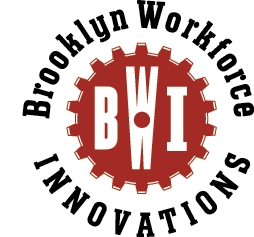Overview The first two posts in this series talk about what we generally encounter as trainers – what we might define as failures in ourselves or our learners. I also cover a few techniques you can quickly in implement for existing trainings or those instances when you need to supplement content. This chapter and...
Telling Ain’t Training – Pt 2: Blame Isn’t the Solution
You’re Really Good at That! (Or How You Become a Trainer) When I took my first position as a trainer over 10 years ago, I had no idea how complex it would be. In hindsight I can see how ill-prepared I was to create meaningful trainings. This isn’t to say they were terrible or ineffective,...
Program Evaluation in Adult Learning Environments
A Little About this Project Although this case study focused on my role and the product my company was selling, the key components of evaluation remain the same. As you read through this article, consider how you currently evaluate success in your role and in your company. How does it compare to what is...
Community Spotlight: Grace Institute
Introduction Grace Institute is a non-profit organization that has provide job readiness training to women for more than one hundred years. Originally a school run by nuns, the agency has since transitioned into a workforce development program geared towards the current job market. The program is tuition free but requires a 20 week commitment,...
Exploring Diversity to Engage in Meaningful Conversation
Diversity is more than a word; it’s a conversation. It requires definition, context, perspective. It has been applied to groups, to initiatives, to companies, to food, to ecosystems. Diversity can and does mean so many different things that in this day and social media age, it’s all but a prerequisite to unpack the term before you can...
Understanding Your Learner
This is the first in a series building on the core concepts explored in Telling Ain’t Training. Click here to read the rest of the series. Understanding Your Learner – What’s Your Approach? When designing trainings, how often have you considered the learner? And in what capacity? Do you think about your delivery method?...
Using Inter-team Collaborations to Promote Critical Thinking Skills
This is part of a 3-part series focusing on applying adult learning theory in the workplace. To see the other articles, view A Brief Intro to Adult Learning Theory and Self Directed Learning as a Training Solution Current Problem Teams across 15 campuses are finding it increasingly difficult to track information and share it with...
A Brief Intro to Adult Learning Theory
There’s a lot of info about learning theory in the early years, but what about for adults? That’s the first question every adult educator should start with. Unlike K-12 education, there aren’t strict governing bodies that inform every decision made in adult education. Instead, our community depends on years of independent and industry research...
Self Directed Learning as a Training Solution
This is part of a 3-part series focusing on applying adult learning theory in the workplace. To see the other articles, view A Brief Intro to Adult Learning Theory and Using Inter-team Collaborations to Promote Critical Thinking Skills. Current Problem Where I currently work, we are finding that our instructors need and crave more targeted...
Community Spotlight: Brooklyn Workforce Innovations
Brooklyn Workforce Innovations isn’t a well-known name here in New York City. There aren’t advertisements on the subway, or anywhere on the streets of Brooklyn. A Google search doesn’t even place them in the top 50 results for NYC workforce centers. Without diligent searching, you’re not likely to come across them at all. It...










